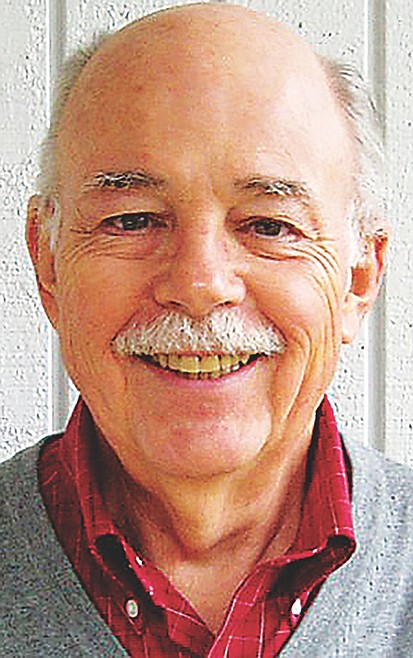A second attempt at Geezer Forum
First, I apologize to all the folks who showed up at the wintery Jan. 9 Geezer Forum, only to discover it was canceled because of the snow. Our speaker, Geriatrician Dr. Meg Skybitsky, was herself snowed in at her family’s Selle Valley home.
The good news is that Dr. Meg will be with us next Tuesday, Feb. 13, to bring her January topic, “Brain Health and Dementia” to us in February. I hope that if you have any concerns about the connection between brain health and dementia, you will join us that day, 2:30-4 p.m. in the Community Room of Umpqua Bank.
In my last Dear Geezer column, I stressed the value of maintaining good brain health, in part as a way to reduce the possibilities of developing symptoms of some form of dementia. Good brain health involves much more than doing crossword puzzles or the daily Wordle.
Brain exercises are important, for sure, but there are many other important reasons to maintain a healthy brain. Can you think of a few? Perhaps some reasons you try to act on yourself? Dr. Meg will likely identify some of those reasons. She’s also eager to respond to your questions about brain health (or any other question you might have).
Good brain health doesn’t guarantee that a person won’t begin showing symptoms of dementia. Many other physiological factors contribute to the many forms of dementia as well. But keeping our brains active and vital is a good start to overall health as we age.
For the rest of this column, I’d like to focus on an aspect of aging that we do have significant control over: ageism. Sometime in the near future, I’ll be leading another forum on the “social disease” called ageism. Six years ago, I led a forum called “housebreaking ageism.” Things haven’t changed much in those six years, folks. Ageism still needs to be housebroken.
The tendency in our culture, in our community, to discriminate against persons because of their age is still prevalent. That’s what ageism is all about. And I’m not only talking about ageist actions or words toward older people. Children, youth, and young, and middle-aged adults are also targeted by actions or comments because of their ages.
I suspect some ageism is a benign habit passed along by well-intentioned persons simply because they were taught that habit by other well-meaning persons. But it’s still discrimination. The good news is that as we are willing to learn what ageism is, we can decide how we will respond to its appearance in our lives — or someone else’s life.
So here is a very brief primer on what kinds of ageism exist. Other persons might add to this little list. But it’s a start.
1. Institutional ageism, a systemic action that occurs when some institution allows ageism through its actions and policies.
2. Interpersonal ageism that occurs in social interactions from family to all kinds of social relationships.
3. Internalized ageism is when we act out ageist beliefs and patterns on ourselves.
If you are interested in learning more about ageism, I would enjoy sitting down with you so we can explore this together. We will likely learn from each other. Please let me know.
In the meantime, please remember that Dr. Meg Skybitsky will be with us at next Tuesday’s Geezer Forum, Feb. 13, 2:30-4 p.m. in Umpqua Bank’s Community Room. Please consider joining us.
Paul Graves, M.Div., is the lead geezer-in-training for Elder Advocates, a consulting ministry on aging issues. He can be contacted by phone at 208-610-4971 or via email at elderadvocates@nctv.com.

